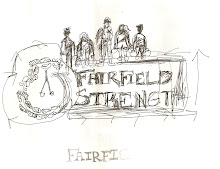Quinoa (pronounced Keen-wah) is an ancient food that is not yet well known in North America. It has been cultivated in South American Andes since at least 3,000 B.C. and has been a staple food of millions of native inhabitants. The ancient Incas called quinoa the "mother grain" and revered it as sacred.The quinoa seed is high in protein, calcium and iron, a relatively good source of vitamin E and several of the B vitamins. It contains an almost perfect balance of all eight essential amino acids needed for tissue development in humans. It is exceptionally high in lysine, cystine and methionine-amino acids typically low in other grains. It is a good complement for legumes, which are often low in methionine and cystine. The protein in quinoa is considered to be a complete protein due to the presence of all 8 essential amino acids.
Quinoa was used to sustain Incan armies, which frequently marched for many days eating a mixture of quinoa and fat, known as "war balls."
The quinoa seed is high in protein, calcium and iron, a relatively good source of vitamin E and several of the B vitamins. It contains an almost perfect balance of all eight essential amino acids needed for tissue development in humans. It is exceptionally high in lysine, cystine and methionine-amino acids typically low in other grains. It is a good complement for legumes, which are often low in methionine and cystine. The protein in quinoa is considered to be a complete protein due to the presence of all 8 essential amino acids. Some types of wheat come close to matching quinoa's protein content, but grains such as barley, corn, and rice generally have less than half the protein of quinoa. Quinoa is 12% to 18% protein and four ounces a day, about 1/2-cup, will provide a childs protein needs for one day. The 6-7% fat of quinoa is relatively high when compared to other grains, but it boasts a low sodium content and also provides valuable starch and fiber. Quinoa also contains albumen, a protein that is found in egg whites, blood serum, and many plant and animal tissues. The seeds are gluten-free which makes this a nutritious and flavorful alternative grain for those with gluten sensitivity. Quinoa would be a worthy addition to anyone's diet, supplying variety as well as good nutrition. information taken from http://chetday.com/quinoa.html








No comments:
Post a Comment